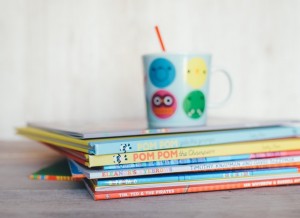The importance of reading by Sarah Neville
1st November 2016
Share this entry:

It is important that we plan for children’s learning by putting the child at the centre of everything we do. The child has to come first – we find out what they already know from their parents (starting points), we assess what they can and cannot do when they first start in the setting (baseline assessment) and we watch and listen to them continuously, writing some of the significant notes down to share with parents (observation).
We then need to draw all that evidence together and use the Early Years Outcomes guidance to help us consider whether their behaviour is ‘typical’ for their age and stage of development (assessment): some children’s learning may be typical while other children might need extra support, either because they are falling behind or racing ahead of their peers.
The Development Matters guidance, any training we have attended and our own knowledge of how to support children’s playful learning, gives us an indication of the types of communication, language and literacy experiences children should be offered when they are with us (individual planning).
There are some rules to consider first though – we know that children need good speaking and listening role models to copy, including adults who speak using ‘standard’ English. We were reminded that we need to use ‘standard’ English when talking to children as well as introducing a lot of different types of English: from verbs, adverbs, nouns, non-phonic words and adjectives to words and sounds which children might not come across in daily life. We must also be careful not to underestimate children and set the bar too low – they are often capable of achieving far more than we know.
Every meeting I have attended with Ofsted in the last few months has signposted their new report ‘Unknown children: destined for disadvantage?’ It is clear that Ofsted really do want us to read it and take on board the findings of the research. The aims of the report are worthy: we need to close the disadvantage gap and we can do that by prioritising children from disadvantaged backgrounds while at the same time ensuring all children receive a consistently high quality early years experience. We were also recommended to read the report ‘The Lost Boys’ from Save the Children and I have put it on my holiday reading list.
During the presentation, we were reminded that every second counts for children’s learning – we need to get them engaged, to ‘ignite their interest’ and to get them reading because this has shown to help them overcome disadvantage in later life. During our inspections, Ofsted (including Prospect and Tribal inspectors until April 2017) will look at how effectively we do this.
Of course, reading doesn’t ‘just happen’ and we have an important role, alongside parents and other settings children attend, to stimulate it and make it exciting by, for example, reading books from different genres, telling stories and bringing them to life with puppets and small world toys, reading poetry, asking and answering children’s questions, encouraging children to predict and speculate about what might happen in the story and much more.
We are reminded that, the more times children hear a ‘reading voice’ in their early years, the better they will be prepared to learn to read in school.
If you would like to discuss this particular issue with Sarah, please contact her here. If there are any topics you would like to see on our blog, then please get in touch: info@childcareexpo.co.uk
Click here to register for your FREE tickets to attend Childcare Expo London on 3rd & 4th March 2017.
Why attend Childcare Expo?
Join over 2,000 like-minded individuals from the early years sector who are dedicated to improving both practice and their childcare settings.
Attend educational seminars to credit your CPD
Meet the experts to have your questions answered
Receive fantastic onsite offers and discounts
Experience expert-led informative hands-on workshops
Network with peers and industry players
Pick up hundreds of new product ideas and services
And most of all, enjoy a great day out with your colleagues




